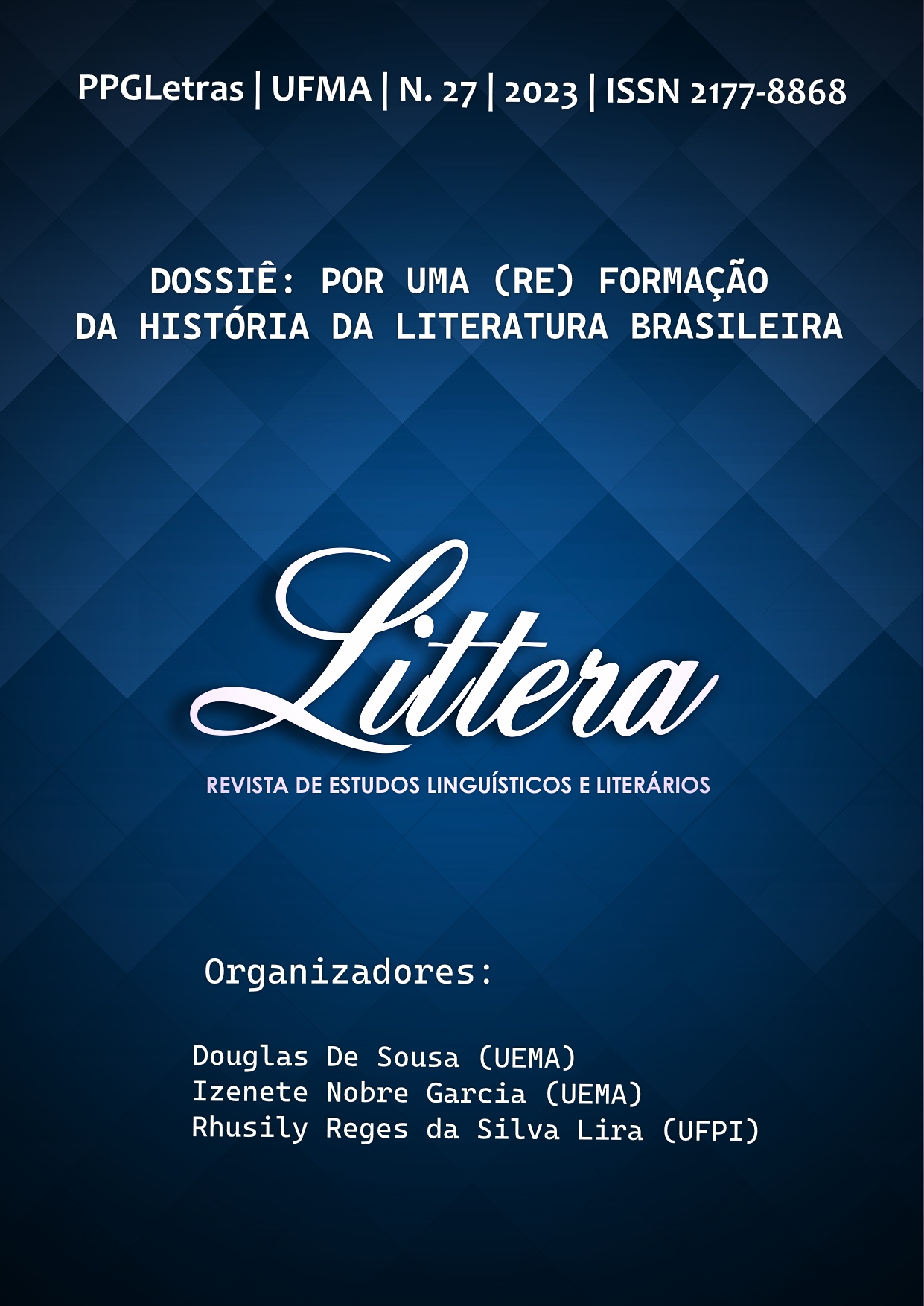ENTRE AS DESCONTINUIDADES E AS PERMANÊNCIAS
nuances de literatura brasileira contemporânea em Rabo de foguete, de Ferreira Gullar
DOI:
https://doi.org/10.18764/2177-8868v14n27.2023.11Palabras clave:
Literatura Brasileira Contemporânea, Rabo de Foguete, Ferreira GullarResumen
crítico literário Giorgio Agamben (2007, p. 10) definiu a condição de contemporâneo como a capacidade de se orientar, mesmo no escuro, para, “a partir daí, ter coragem de reconhecer e de se comprometer com um presente com o qual não é possível coincidir” Ser contemporâneo é, portanto, a tentativa de caminhar por solos cada vez mais imprecisos, fragmentados e maleáveis, sem, não obstante, deixar de (re)conhecer as demandas necessárias do tempo no qual o sujeito se encontra. Dessa maneira, este trabalho tem o objetivo de analisar a obra Rabo de foguete, de Ferreira Gullar, cujo enredo se concentra nas memórias de exílio do autor no contexto de Ditadura Militar, sob a ótica de uma (re)formação de estilo literário pautado nas nuances que envolvem as descontinuidades e/ou permanências que envolvem a contemporaneidade. Assim, o texto pensa algumas nuances da literatura brasileira contemporânea, como o protagonismo de um indivíduo num tempo de quebra tecido social, ao passo que tenta mostrar os aspectos estilísticos e temáticos que envolvem a heterogeneidade e a disposição das formas de um (novo) realismo. Por meio de uma pesquisa qualitativa e bibliográfica, as análises são baseadas em autores como Giorgio Agamben (2007), Karl Eric Schollhammer (2009), Tânia Pelegrini (2001) e Ítalo Moriconi (2001), de modo a pensar como o autor-narrador-personagem Ferreira Gullar se pauta como um ser contemporâneo, em uma escrita contemporânea, em torno dos estilos, abordagens e temáticas por entre o entrecho de Rabo de foguete.
Descargas
Citas
REFERÊNCIAS
AGAMBEN, Giorgio. O que é contemporâneo? e outros ensaios. Tradução de Vinicius Nicastro Honesko. Chapecó, SC: Argos, 2009.
ARRIGUCCI JR, Davi. Tudo é exílio. Jornal de Resenhas nº 44, Novembro de 1998. Acesso em 16 de outubro de 2020, às 15h10. Disponível em: http://www.jornalderesenhas.com.br/resenha/tudo-e-exilio/
BOSI, Alfredo. História concisa da literatura brasileira. 43 ed. – São Paulo: Cultrix, 2006.
CANDIDO, Antonio. Literatura e Sociedade. 9ª edição, Editora Ouro Sobre Azul. Rio de Janeiro: 2006.
GULLAR, Ferreira. Rabo de foguete: os anos de exílio. Rio de Janeiro: Revan, 2008, 3ª edição, abril de 2003, 1ª reimpressão, outubro de 2010.
HUTHEON, Linda. Poética do pós-modernismo: história, teoria e ficção. Tradução de Ricardo Cruz. Rio de Janeiro, - Imago E, 1991.
LEJEUNE, Phelippe. O pacto autobiográfico: de Rousseau à Internet. Trad. Jovita Maria Gerheim Noronha e Maria Inês Coimbra Guedes. Belo Horizonte: UFMG, 2008.
MORICONI, Italo. A problemática do pós-modernismo na literatura brasileira. Revista Filologia, ABF, VOLUME 3, Número 01/02. Disponível em: http://www.filologia.org.br/abf/volume3/numero1/02.htm. Acesso em: 21 de julho de 2021.
PELLEGRINI, Tânia. Ficção Brasileira Contemporânea: Assimilação ou resistência? Revista Novos Rumos. Ano 16, nº 35, 2001.
PELLEGRINI, Tânia. Realismo, postura e método. Revista Letras de hoje, volume 2, nº 4. Porto Alegre: 2007.
SANTIAGO, Silviano. Nas malhas da letra: ensaios. Rio de Janeiro, Rocco, 2002.
SCHOLLHAMMER, Karl Eric. Ficção Brasileira Contemporânea. Civilização Brasileira, Rio de Janeiro, 2009.
LITTERA ONLINE
SILVA, José Mário. Rabo de foguete: os anos do exílio. Autores e Livros, 2011. Disponível em: https://autoreselivros.wordpress.com/2011/02/22/rabo-de-foguete-os-anos-de-exilio-de-ferreira-gullar/. Acesso em: 22 de dezembro de 2020.
Descargas
Publicado
Cómo citar
Número
Sección
Licencia

Esta obra está bajo una licencia internacional Creative Commons Atribución-NoComercial-SinDerivadas 4.0.
Direitos autorais Littera on line
Este obra está licenciado com uma Licença Creative Commons Atribuição-NãoComercial-SemDerivações 4.0 Internacional.









